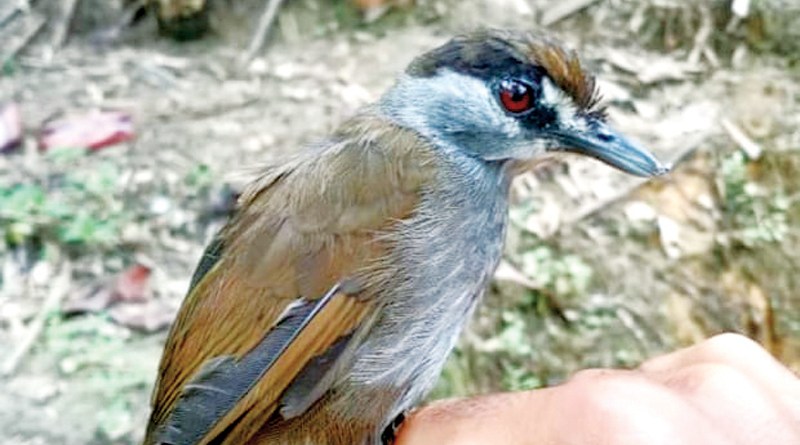In October 2020, two researchers in Borneo stumbled upon a bird they had never seen before. They photographed and released it, then sent the pictures to birdwatching organisations in the area for identification. The bird wasn’t just new to them. Scientists identified it as the black-browed babbler, a bird last documented in Indonesia around 170 years ago and believed to be extinct. It is so rare that the data on the only collected specimen lists it as “presumed extinct.”
—
What is Happening?
- Between 1843 and 1848, the black-browed babbler was caught for the first and only time, presumably on the island of Java. The bird was put into storage and for the next 170 years, there were no further reports of its existence. Most in the field assumed that it had gone extinct.
- The discovery of the bird in Borneo, Indonesia proves that the bird was only thought to be extinct because people were looking for it in the wrong place. It also raises the questions of how many species are living in Borneo, and whether it is at risk.
- The study, published in BirdingAsia, notes that this is the longest an Asian bird has been lost to science. The authors also detailed the rediscovered bird’s physical characteristics and the differences between the one in the recent photograph and the taxidermied specimen. The authors write, “The facial appearance of the bird was very distinct, with the crown being chestnut brown, demarcated by a broad, black eye-stripe extending across the malars (cheekbone) to the nape and necksides.”
- There are three major differences between the live and stuffed specimens. The former has maroon irises instead of yellow; its legs are slate grey instead of brown; and its bill is a different colour.
- Unfortunately, the researchers do not have enough information to determine the conservation status of the rediscovered species, but they hope to do further study. However, the massive deforestation in lowland Borneo and the subsequent habitat loss is likely a threat.
You might also like: UN Report Lays Out Blueprint to End ‘Suicidal War on Nature’
Ding Li Yong of BirdLife International and study coauthor said in a press release, “It’s sobering to think that when the black-browed babbler was last seen, Charles Darwin’s Origin of Species hadn’t even been published and the now extinct passenger pigeon was still among the world’s commonest birds. Who knows what other riches lie deep within Borneo’s fabled rainforests, especially in the Indonesian part of the island?”
Featured image by: Oman Observer

















